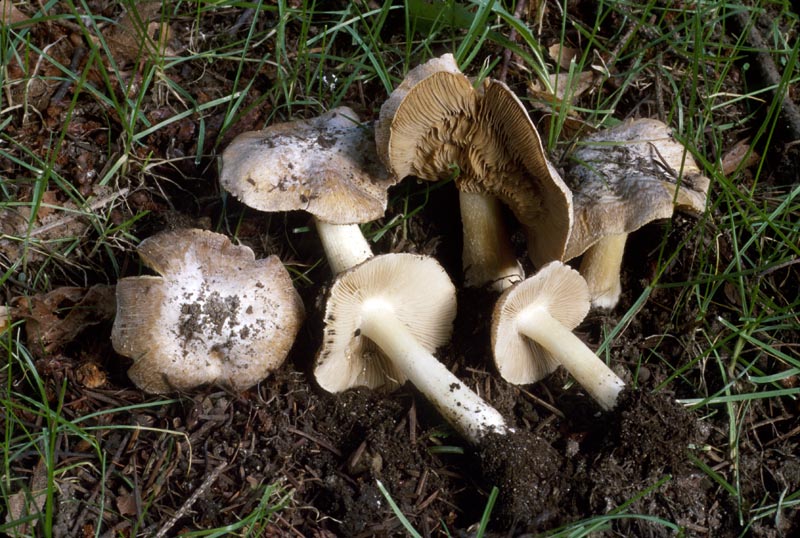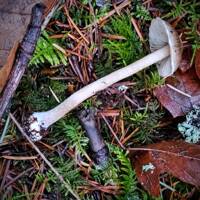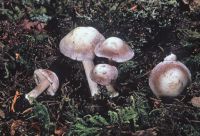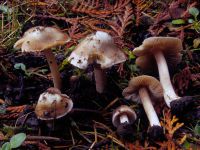Distribution: I. albodisca has been reported from throughout the forested PNW, south to California, and east to New England
Conservation Status: Not of concern
Inocybe albodisca’s most distinctive feature is its two-toned, cream-on-brown, coloration; the cap is smooth to silky-fibrillose, sometimes slightly moist, pale grayish brown to pinkish brown (sometimes with a slight lilac tint) except at the center which has a persistent creamy white superficial layer. The odor is spermatic. The gills are whitish when young, then become dingy pinkish or ashy brown with age, except for the edges which remain whitish. The stipe is similar in color to the brown or gray tones in the cap, sometimes paler and often with a slight pinkish tint; it is powdery over its entire length and has an abrupt white bulb at the base. The spores are elliptical to almost rectangular, lumpy with 7 to 9 small warts, and roughly 6--9 x 4.5--6 µm. Both cheilocystidia and pleurocystidia are abundant; they are thick-walled with the narrowed apex often encrusted; mixed among the cheilocystidia are thin-walled club-shaped cells (paracystidia).
PNW Herbaria: Specimen records of Inocybe albodisca in the Consortium of Pacific Northwest Herbaria database
CalPhotos: Inocybe albodisca photos






